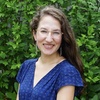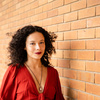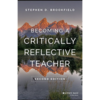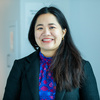Fall Teaching Conference & Winter Teaching Week
Getting Started as a Teaching Fellow
Are you looking for our training for new Teaching Fellows? Are you a PhD student preparing to teach this year? We have two regular offerings designed to help new Teaching Fellows learn about teaching and feel ready to go into the classroom.
Winter Teaching Week 2024
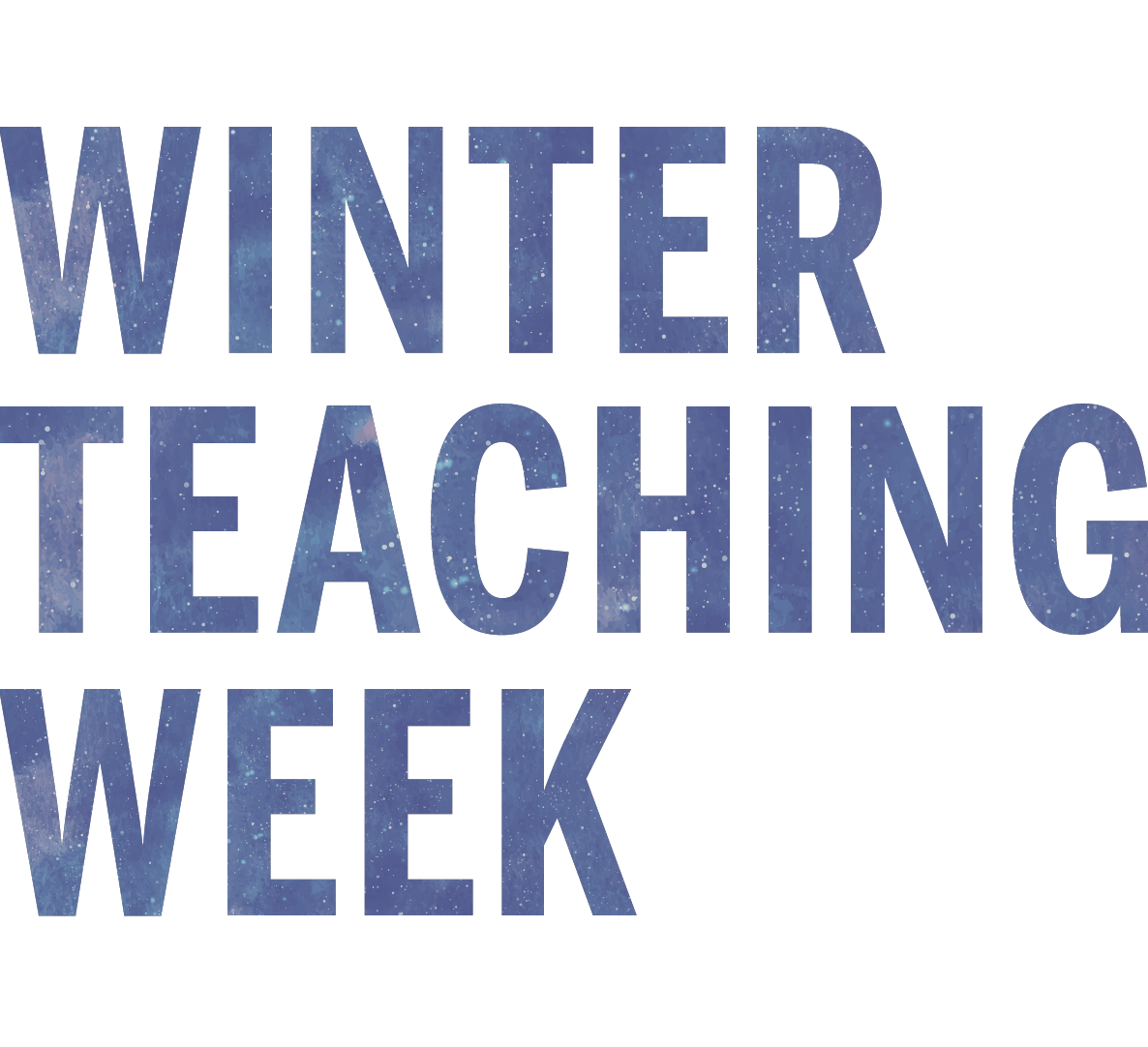 This January 17-19, PhD students are invited to join Bok staff and connect with peers across disciplines to reflect on your teaching and professional development goals, explore key ideas to enhance your teaching and communication skills, and recharge before the spring term starts. Winter Teaching Week is a great way for you to sample the range of work we do at the Bok Center, learn about opportunities to engage with us in more depth, and join our community.
This January 17-19, PhD students are invited to join Bok staff and connect with peers across disciplines to reflect on your teaching and professional development goals, explore key ideas to enhance your teaching and communication skills, and recharge before the spring term starts. Winter Teaching Week is a great way for you to sample the range of work we do at the Bok Center, learn about opportunities to engage with us in more depth, and join our community.
Winter Teaching Week 2024 was held on January 17-19.
You may register for any or all of our workshops based on your teaching and professional development interests. All workshops will be held at the Bok Center on the 3rd floor at 125 Mt. Auburn Street. View our accessibility statement.
| Wednesday, January 17: Frameworks and Reflection | Time (EST) |
|---|---|
| Critical Reflection: Taking Your Teaching to the Next Level | 11:00 am-12:15 pm |
| How Can I Make the Most of the Bok Center? A Lunch Discussion | 12:15-1:15 pm |
| Using Growth Mindset to Improve Teaching and Learning | 1:30-2:45 pm |
| Responding to Student Writing Efficiently and Effectively | 3:00-4:15 pm |
| Thursday, January 18: Classroom Practice | Time (EST) |
|---|---|
| Teaching in the Age of Generative Artificial Intelligence | 9:30-10:45 am |
| The Top 4 Teaching Challenges … and How to Address Them | 11:00 am-12:15 pm |
| Motivating Your Students and Yourself: A Lunch Discussion with Experienced TFs | 12:15-1:15 pm |
| Make Your Move: Teaching Discussion as a Skill | 1:30-2:45 pm |
| Problems and P-Sets: Designing and Teaching Problems in STEM | 1:30-2:45 pm |
| Navigating Challenging Moments in the Classroom | 3:00-4:15 pm |
| Friday, January 19: Engaged Communication | Time (EST) |
|---|---|
| Building Your Communication Skills as an International Scholar | 9:30-10:45 am |
| Public Speaking: Connecting with Your Audience Through Voice and Movement | 11:00 am-12:15 pm |
| Communicating Your Research: A Lunch Discussion | 12:15-1:15 pm |
| Teaching and Your Career | 1:30-3:00 pm |
Winter Teaching Week Workshop Descriptions
Critical Reflection: Taking Your Teaching to the Next Level
Pamela Pollock, Director of Professional Development
As scholars, we are always developing our research, but how do we think about learning and growing as a teacher? In this session, we will look at a variety of frameworks, sources, and strategies for gathering feedback and using it to improve our teaching and our students’ learning. We will explore four lenses through which we can consider our teaching - self, students, colleagues, and the literature - and discuss how to build our own toolkit for becoming more reflective and effective teacher-scholars.
How Can I Make the Most of the Bok Center? A Lunch Discussion
Bok Center Staff
Have lunch, learn more about our programming and resources, and explore ways to engage with us as a PhD student! We will share an overview of our programming for PhD students, including Bok Seminars and Teaching Certificates, the Professional Communication Program for International Teachers and Scholars, and our Fellows Programs. Learn more about our resources to support your teaching and communication goals, no matter your discipline or stage of your graduate career.
Using Growth Mindset to Improve Teaching and Learning
Anza Mitchell, Assistant Director, Science Pedagogy
Growth mindset—the belief that your skills and intelligence are malleable and can be improved with hard work and practice—has been shown to be a vital aspect of learning. In this session, we will focus on developing a growth mindset for ourselves and for our students, and why both are important. You will leave with concrete strategies for helping students focus on how to thrive—rather than just survive—in their college classes by considering themselves on a journey towards developing new skills and knowledge in which meaningful challenges are to be embraced rather than avoided.
Responding to Student Writing Efficiently and Effectively
Jonah Johnson, Assistant Director for Writing Pedagogy; Head Preceptor in the Writing Program
Is giving feedback on papers totally new to you? Or have you graded a thousand papers but have questions about keeping your feedback as accurate, consistent, and useful as possible for your students? Are you worried about how much time you spend on comments and grading? In this session we’ll discuss best practices for responding to student writing, which will help you give feedback and grade more efficiently and effectively. We’ll discuss general principles of giving feedback along with specific questions, including: how to write margin and end comments, how to use your feedback to engage students as writers and thinkers, how to talk to your students about the possible role of AI in writing, and how to utilize written feedback to create a more inclusive teaching and learning experience. Note: Please complete the Responding to Student Writing Module on the Hit the Ground Running Canvas site in preparation for this session.
Teaching in the Age of Generative Artificial Intelligence
Adam Beaver, Director of Pedagogy
The emergence of generative A.I. has the potential to change how we learn, how we teach, and how we work. How can we design our courses to help students learn about and be prepared to engage with a future that includes A.I., without compromising our core mission of helping them to develop an independent mind and original voice, the ability to reason, and intellectual humility? In this session we’ll share information, examples, and best practices derived from our work with faculty who are at the forefront of grappling with what the advent of artificial intelligence means for teaching and scholarship. We’ll also encourage participants to share their own sense of the opportunities and challenges that may arise in classrooms this year, and brainstorm solutions.
The Top 4 Teaching Challenges … and How to Address Them
Chloe Chapin, Assistant Director, Course Design
How do I plan a section? What’s a good in-class activity? How do I grade this assignment? How should I start planning a sample syllabus for the job market? As an instructor, your challenge is to create a learning environment where students have the tools, opportunity, and desire to learn. How do you create the conditions where this is possible? In this session, we will use backwards design to practice planning engaging and goal-oriented courses, assignments, lessons, and activities. Backwards course design is a method of curriculum planning and assignment design that centers student engagement. It will help you learn to articulate your goals and objectives and create appropriate methods of instruction and assessment. We will reflect on ways that these backwards design strategies can help us think about our own goals, scholarship, and values as educators.
Motivating Your Students and Yourself: A Lunch Discussion with Experienced TFs
Lee Cannon-Brown, Bok Pedagogy Fellow, and other experienced TFs
During the busy semester, it can be difficult to find the energy to stay motivated and to keep your students engaged, too. To maintain motivation and engagement in the classroom, it can be important to connect with peers and seek out teaching mentors. In this interactive panel discussion, three experienced TFs will explore their approaches to 1) defining teaching goals and priorities, 2) aligning expectations between teachers and students, 3) building supportive and motivated classrooms, and 4) leveraging their identities as teacher-scholars to energize their teaching and their students’ connection to the material.
Make Your Move: Teaching Discussion as a Skill
Rebecca Miller Brown, Assistant Director, Graduate Student Programming
In many disciplines, students are meant to learn from “doing the reading,” discussing it in class, and then writing a paper or doing a project about it. How can we make the discussion component of this process (which largely happens in section) effective and engaging, and how can we build these skills as teachers? In this session we will consider what makes for a productive discussion in your discipline, how students know what “counts” as contributing to a discussion, and how you can encourage your students to engage and learn from discussion (and not simply participate). We’ll talk about the possible goals of a discussion and play (literally!) with the various moves that participants make, with the aim of making implicit discussion dynamics more explicit for students and instructors alike. By framing discussion as a skill and making clear all the ways students can participate, you can help students not only learn the content but also develop as effective speakers and listeners.
Problems and P-Sets: Designing and Teaching Problems in STEM
Anza Mitchell, Assistant Director, Science Pedagogy
Do you want to design problems that will help your students develop their critical thinking skills and understand your course content better? How do you help students learn how to do the problems in section without giving them the answers? In this session, we will explore principles of problem design and best practices for running problem-based sections. We will practice evaluating problem sets and different types of feedback. You will leave this session with strategies to design and teach problem sets to better help students learn.
Navigating Challenging Moments in the Classroom
Ashlie Sandoval-Lee, Assistant Director, Equity & Inclusion
Challenging moments can emerge even in the best-designed courses. Instructors and students might be tasked with engaging with materials or comments that conflict with their worldview; they may encounter or perpetuate microaggressions in the classroom; or they may become activated by course content. When classroom discussions and activities result in unforeseeable, unintended, or unwanted outcomes, those moments can be stressful for instructors. How can you stay present and successfully facilitate conversations when conflict, difficult emotions, or trauma are present? In this session, we will learn and practice a mindful listening strategy and explore best practices to help you and your students acknowledge feelings as they arise. Our goal is to help instructors learn to reframe challenging moments as opportunities to foster community and confidence, and to make sure that they do not become a barrier to learning goals.
Building Your Communication Skills as an International Scholar
Sarah Emory, Assistant Director, International Teachers and Scholars
How do our language and cultural backgrounds affect the ways we think about communication? What strategies can we use to communicate clearly in academic and professional settings? In this interactive session, we will explore cultural components of communication and then practice specific strategies to speak clearly and confidently, to listen effectively, and to handle unexpected questions. This session is designed for those who speak English as an additional language but is useful for anyone interested in strengthening their communication skills. Stay after the session for a broader workshop on public speaking and engaged communication.
Public Speaking: Connecting with Your Audience Through Voice and Movement
Erika Bailey, Head of Voice and Speech, American Repertory Theater; Lecturer on Theater, Dance & Media
We spend most of our time preparing for class or presentations by focusing on what we need to cover— what we need to SAY. But are we actually reaching our audiences? Our physical as well as our vocal presence play an integral role in our ability to communicate our ideas and engage students and other audiences. Using exercises from the theater that strengthen vocal and physical expressiveness, we will explore strategies to keep our audiences present and engaged. Participants should be prepared to give a very short introduction of themselves and their research area (no longer than 30 seconds) to put into practice the strategies modeled in this session.
Communicating Your Research: A Lunch Discussion
Pamela Pollock, Director of Professional Development
Stay for lunch to discuss how to apply what you learned from Erika Bailey’s Engaged Communication session to practice and get feedback on communicating your research. We consider how the basic principles of good pedagogy are also the basic principles of effective and engaging speaking: having clear goals and structuring the content to help the audience understand and become engaged in the material. This session is designed for all PhD students who want to be more engaging teachers or prepare for presentations, job interviews and job talks.
Teaching and Your Career
Rebecca Miller Brown, Assistant Director, Graduate Student Programming, and Caroline Rende, Interim Associate Director, Graduate Career Services, MCS
How do you leverage your teaching experience in your job search? As a teacher you learn so much, including how to communicate complex topics, organize material, facilitate a group, manage time, set goals, support students, and give feedback. How can you articulate these skills? How might these skills be valued by employers? In this interactive workshop hosted by the Derek Bok Center for Teaching and Learning and the Mignone Center for Career Success, you’ll explore what you’ve learned from your teaching experiences, reflect on which elements of teaching you’ve found most rewarding, and consider how the strengths and interests you’ve developed as a teacher may be valuable to a variety of career paths. This session is designed for graduate students at any stage interested in exploring their teaching strengths and how they relate to their future career, whether in or outside of academia.
Fall Teaching Conference 2023
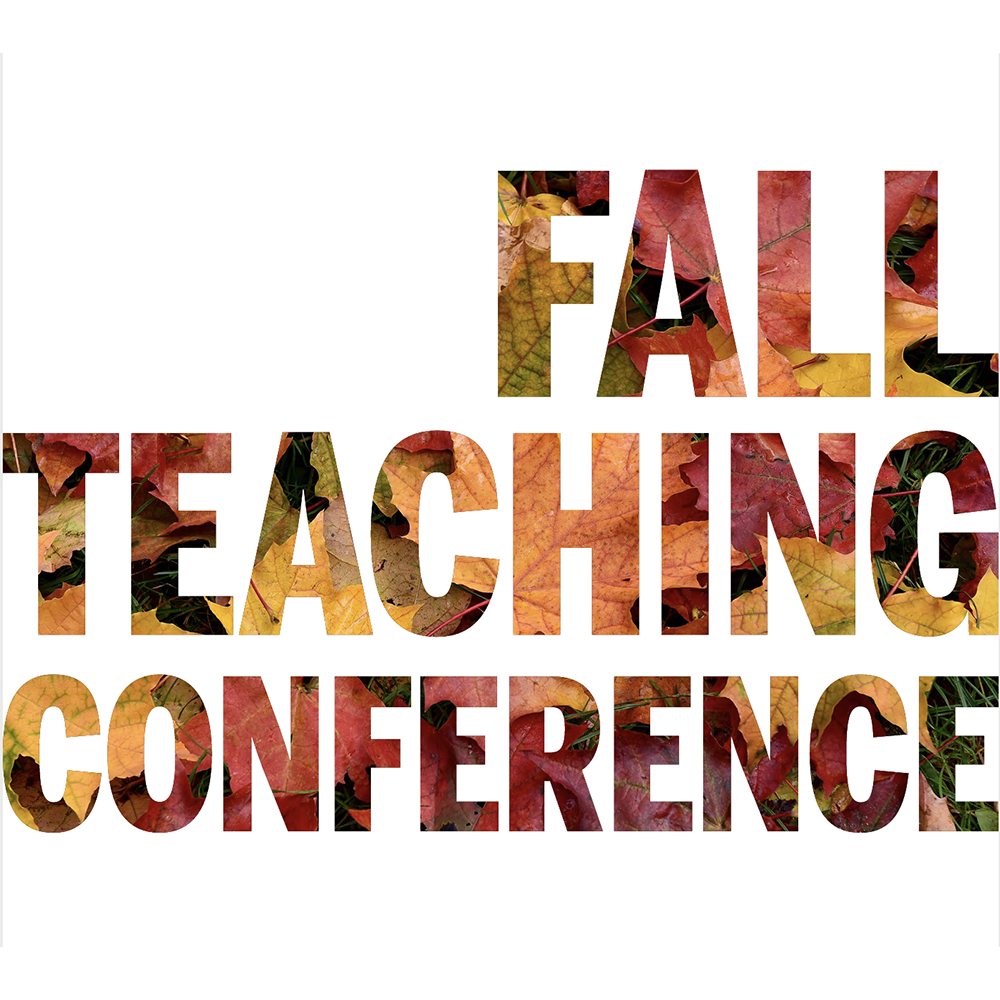 Fall Teaching Conference 2023 was held from August 22-September 8.
Fall Teaching Conference 2023 was held from August 22-September 8.
Join the Bok Center this August and September for the Fall Teaching Conference! New and experienced PhD student teachers can explore key topics in teaching and learning, build community and share advice with TFs across disciplines, and feel prepared and confident as we start a new year of teaching and learning. There is a lot to consider as you plan your teaching: check out this Resource Roadmap for TFs as a quick guide for where to go with your teaching questions. (e.g. Have a Canvas question? Email Academic Technology. Will you need to use the Sectioning Tool? Contact the Registrar.) For more detailed guidelines, consult the Bok Center’s Teaching Timeline, a step-by-step guide with resources to help instructors navigate the term.
NOTE: We will be providing additional resources for TFs about teaching in the era of generative Artificial Intelligence (A.I.) and integrating a discussion of generative A.I. into relevant sessions.
The Fall Teaching Conference is designed for Harvard Griffin GSAS PhD students and others at similar career stages engaged in the teaching of Harvard College undergraduates.
Fall Teaching Conference 2023 Session Descriptions
Lunch Discussions
Lunch Discussion: How Can I Make the Most of the Bok Center?
Tuesday, September 5, 12:00-1:15 pm EDT
Bok Center Staff
Come have lunch with us, learn more about our programming and resources, and explore ways to engage with us as a PhD student! We will share an overview of our programming for PhD students, including Bok Seminars and Teaching Certificates, the Professional Communication Program for International Teachers and Scholars, and our Fellows Programs. Learn more about our resources to support your teaching and communication goals, no matter your discipline or stage of your graduate career.
Lunch Discussion: Leading Discussion-Based Sections
Tuesday, August 29, 12:30-1:30 pm EDT and Wednesday, August 30, 12:30-1:30 pm EDT (for new TFs)
Wednesday, September 6, 12:00-1:15 pm EDT (for all TFs)
Pedagogy Fellows
In this small-group discussion, join experienced TFs in the humanities and social sciences to discuss questions like, how do you prepare to lead a discussion-based section? What kinds of things can you do in class to keep students engaged? How do you give feedback? Participants will leave the session with tips and strategies for teaching in discussion-based sections. In this session we will also consider implications for TFs teaching in the era of generative A.I.
Lunch Discussion: Leading Problem-Based Sections
Tuesday, August 29, 12:30-1:30 pm EDT and Wednesday, August 30, 12:30-1:30 pm EDT (for new TFs)
Thursday, September 7, 12:00-1:15 pm EDT (for all TFs)
Pedagogy Fellows
In this small-group discussion, join experienced TFs in the sciences to discuss questions like, how do you lead a problem-based section? How do you help students solve problems (without giving them the answers)? How do you give feedback? Participants will leave the sessions with tips and strategies for teaching in problem-based sections. In this session we will also consider implications for TFs teaching in the era of generative A.I.
Lunch Discussion: Teaching in the Age of Artificial Intelligence
Friday, September 8, 12:00-1:15 pm EDT
Adam Beaver, Director of Pedagogy, Derek Bok Center for Teaching and Learning
The emergence of generative A.I. has the potential to change how we learn, how we teach, and how we work. How can we design our courses to help students learn about and be prepared to engage with a future that includes A.I., without compromising our core mission of helping them to develop an independent mind and original voice, the ability to reason, and intellectual humility? In this session we’ll share information, examples, and best practices derived from our work with faculty who are at the forefront of grappling with what the advent of artificial intelligence means for teaching and scholarship. We’ll also encourage participants to share their own sense of the opportunities and challenges that may arise in classrooms this year, and brainstorm solutions.
Workshops
How Students Learn
Tuesday, September 5, 10:30-11:45 am EDT
Tamara Brenner, Executive Director, Derek Bok Center for Teaching and Learning
How do students construct and organize knowledge? What strategies help students retain information and apply their knowledge to new situations? What factors influence student motivation? In this workshop, we will explore key ideas about what we know about how students learn and discuss strategies that you can apply to your own teaching.
Universal Design for Learning
Tuesday, September 5, 1:30-2:45 pm EDT
Anza Mitchell, Assistant Director, Science Pedagogy, Derek Bok Center for Teaching and Learning
How do we design our courses so that all students can engage in meaningful learning experiences? The goal of Universal Design for Learning (UDL) is to intentionally design the learning environment from the start (rather than waiting for accommodation requests) to reduce barriers for students. In this workshop, we’ll explore ways to apply key principles of UDL to the design of courses. We’ll provide examples of how instructors can design activities and assessments so that all students, regardless of disability or background, can fully engage with the course material. Participants will leave this session with strategies that they can begin implementing to improve accessibility in their classes.
Equitable and Inclusive Teaching
Tuesday, September 5, 3:00-4:15 pm EDT
Ashlie Sandoval-Lee, Assistant Director, Equity and Inclusion, Derek Bok Center for Teaching and Learning
Equitable and inclusive teaching requires that we (1) identify how social dynamics and systemic inequality pose barriers to advancing student learning and well-being and (2) develop practical strategies to address these dynamics in our classrooms and pedagogical approaches. In this session, we’ll start by considering common challenges to fostering equitable and inclusive learning environments. Then, we’ll explore an array of strategies to skillfully attend to these challenges as well as work through classroom scenarios to consider how you might utilize these strategies to deepen your approaches to teaching inclusively.
Reading: The Most Impressive Thing You Can Teach?
Wednesday, September 6, 10:30-11:45 am EDT
Adam Beaver, Director of Pedagogy, Derek Bok Center for Teaching and Learning
What is a scholar in your discipline actually doing when they are “reading"? How did you learn to perform all of the moves that an effective reader performs? How can you help your students learn to do the same? In this session we will break down what it really means to “read” across our scholarly disciplines. We’ll deconstruct our own disciplinary reading practices, and brainstorm how students new to a discipline can learn to become more skilled readers in it. We’ll consider what novice reading looks like by comparison with intermediate or expert reading, and cultivate a new appreciation not only for how to teach reading, but also for the work that we ourselves are expected to do as professional scholars.
Teaching Across Disciplines
Wednesday, September 6, 1:30-2:45 pm EDT
Adam Beaver, Director of Pedagogy, Derek Bok Center for Teaching and Learning
Chloe Chapin, Assistant Director, Course Development, Derek Bok Center for Teaching and Learning
As a graduate student, you may be asked to teach a course outside of your primary area of expertise—whether in a department or program different from your own, or in the Program in General Education. This can be a daunting prospect, but effective teaching ultimately is not just (or even primarily) about mastering or communicating a specific body of content. It is about rendering transparent to students the rules of the disciplinary game(s) they are being asked to play. While they need to understand what they are reading or writing, students also need to understand how they are supposed to read, and why they are writing. What are the questions that “count” in this class? What kinds of data are considered evidence for the claims your students will have to make? What kinds of “moves” are valued here? In this session we will explore how you set priorities, make norms explicit, and frame the content you teach. You will come away with strategies to help you use what you know about academic inquiry to help students learn how to think as scholars.
Make Your Move: Teaching Discussion as a Skill
Wednesday, September 6, 3:00-4:15 pm EDT
Rebecca Miller Brown, Assistant Director, Graduate Student Programming, Derek Bok Center for Teaching and Learning
In many disciplines, students are meant to learn from “doing the reading,” discussing it, and writing or doing a project about it. How can we make the discussion component of this process (which largely happens in section) effective and engaging, and how can we build these skills as teachers? In this session we will consider what makes for a productive discussion in your discipline, how students know what “counts” as contributing to a discussion, and how you can encourage your students to engage and learn from discussion (and not simply participate). We’ll talk about the possible goals of a discussion and play (literally!) with the various moves that participants make, with the aim of making implicit discussion dynamics more explicit for students and instructors alike. By framing discussion as a skill and making clear all the ways students can participate, you can help students not only learn the content but also develop as effective speakers and listeners.
Responding to Student Writing Efficiently and Effectively
Wednesday, September 6, 4:30-5:45 pm EDT
Jonah Johnson, Assistant Director for Writing Pedagogy, Derek Bok Center for Teaching and Learning; Head Preceptor in the Writing Program
Is giving feedback on papers totally new to you? Or have you graded a thousand papers and need some new ideas? Are you worried about how much time you spend on comments and grading? Or how to ensure that your feedback is accurate, consistent, and useful for your students? In this session we’ll discuss best practices for responding to student writing, which will help you give feedback and grade more efficiently and effectively. We’ll discuss general principles of giving feedback along with specific questions, including: how to write margin and end comments, how to use your feedback to engage students as writers and thinkers, and how to utilize written feedback to create a more inclusive teaching and learning experience. Please complete the Responding to Student Writing Module on the Hit the Ground Running Canvas site in preparation for this session.
How am I Doing? Using Feedback to Improve our Teaching and Develop Professionally
Thursday, September 7, 10:30-11:45 am EDT
Pamela Pollock, Director of Professional Development, Derek Bok Center for Teaching and Learning
As scholars, we are always developing our research, but how do we think about learning and growing as teachers? In this session, we will consider a variety of sources and strategies for gathering feedback and using it to improve our teaching and our students’ learning. We will explore four lenses through which we can consider our teaching - self, students, colleagues, and the literature - and discuss how to build our own toolkit for becoming critically reflective teacher-scholars.
Facilitating Active Learning in an Inclusive STEM Classroom
Thursday, September 7, 1:30-2:45 pm EDT
Anza Mitchell, Assistant Director, Science Pedagogy, Derek Bok Center for Teaching and Learning
What can you do with your students during section to keep them engaged, thinking, and learning? How can you help them feel welcome and ready to learn? In this session, we will explore the value of active learning in STEM classes, and model examples of how different types of activities can be used to teach various concepts. Furthermore, we’ll examine how active learning can foster a more inclusive classroom, where all students can participate, feel welcomed, and develop personal connections to science. You will come away with strategies and ideas for how to implement active learning in your section.
Teaching as an International Scholar
Thursday, September 7, 3:00-4:15 pm EDT
Sarah Emory, Assistant Director, International Teachers and Scholars, Derek Bok Center for Teaching and Learning
Are you a TF who got your undergraduate degree at an institution outside the U.S.? If so, you may have questions about teaching undergraduates at Harvard. How might the undergraduate experience here differ from your own experience? As an International TF, what do you need to know to navigate teaching in Harvard classrooms successfully? In this interactive discussion, you will have the opportunity to explore issues related to teaching across borders and boundaries and hear from Harvard undergraduate students and experienced international TFs who will share their perspectives on what strategies effective TFs use. You will learn and practice useful strategies for building connections with undergraduates. Please note that the Teaching as an International Scholar module on the Hit the Ground Running Canvas site is a useful resource for international TFs interested in this session.
Developing your Teaching Materials for the Job Market
Friday, September 8, 1:30-2:45 pm EDT
Adam Beaver, Director of Pedagogy, Derek Bok Center for Teaching and Learning
Are you on or near the job market? Enthused or concerned about the prospect of assembling a teaching portfolio or writing a teaching statement, diversity statement, or syllabus? When you hit the job market, it’s natural to feel some anxiety about how to explain who you are as a teacher in a coherent and compelling way. Do you have enough experience? The right kind of experience? The answer, of course, is yes: yes, you do. The challenge is how to organize and communicate that experience in a way that will show a search committee not just what you have done, but also how much you’ve learned from it, and that you are likely to keep developing in the right direction as a colleague. In this workshop you will get hands-on experience developing your teaching materials for the job market.
Demystifying Diversity Statements
Friday, September 8, 3:00-4:15 pm EDT
Ashlie Sandoval-Lee, Assistant Director, Equity and Inclusion, Derek Bok Center for Teaching and Learning
Though an increasing number of faculty search committees ask candidates to submit diversity statements, guidance about how to compose an effective statement—indeed, even about what they are and why they can be valuable to institutions and candidates’ own professional development—remains scarce. How can you approach writing a diversity statement, considering your own identity and motivation in the context of sharing how you can contribute to making institutions more inclusive and equitable? In this workshop, we will explore ways to craft a compelling diversity statement and engage in hands-on activities that help you define your values in regard to equity, diversity, inclusion, and belonging (EDIB) as well as consider how your research, teaching, and service actualize your EDIB goals.
Campus Resources
Online HGSU Orientation
Wednesday, August 30, 10:30-11:00 am EDT
As you prepare for the semester, make sure you have everything you need to get back to work this fall. Student workers at Harvard are covered by a union contract and entitled to an appointment letter, an orientation from a union steward, access to benefit funds, and the right to participate in your union. Come talk to your HGSU representatives to learn about your contractual rights, how the union organizes to enforce them, and what you can do to help.
Engaged Scholarship and Facilitation To Build Community
Thursday, August 31, 10:00-11:00 am EDT
What is engaged scholarship? We’ll start by introducing this orientation to teaching and learning that aims to connect “the rich resources of the university to our most pressing social, civic, and ethical problems” (Boyer, 1996). The second half of the hour will highlight one engaged scholarship core competency useful to TFs across disciplines and course types: What is the difference between facilitation and instruction? How can deliberately emphasizing your role as a facilitator encourage community and foster equity in your section? We’ll explore a variety of approaches to leading a classroom, learn the circumstances under which different approaches will have the greatest effect, and develop a set of strategies for helping your students learn through doing.
Led by Mindich Program in Engaged Scholarship staff, and open to all graduate students. Email engagedscholarship@fas.harvard.edu to request a zoom link.
Graduate Student News
Teaching Matters
Hear reflections on the value of the Bok Center, and of teaching, in our Teaching Matters gallery.
We are here for PhD students!
MEET WITH US about the best ways to use our programs and resources, depending on your teaching and professional development goals.
Hit the Ground Running
 Explore our Hit the Ground Running resource site, which includes self-study modules on the fundamentals of teaching, engaged communication, equitable and inclusive teaching, and more.
Explore our Hit the Ground Running resource site, which includes self-study modules on the fundamentals of teaching, engaged communication, equitable and inclusive teaching, and more.

